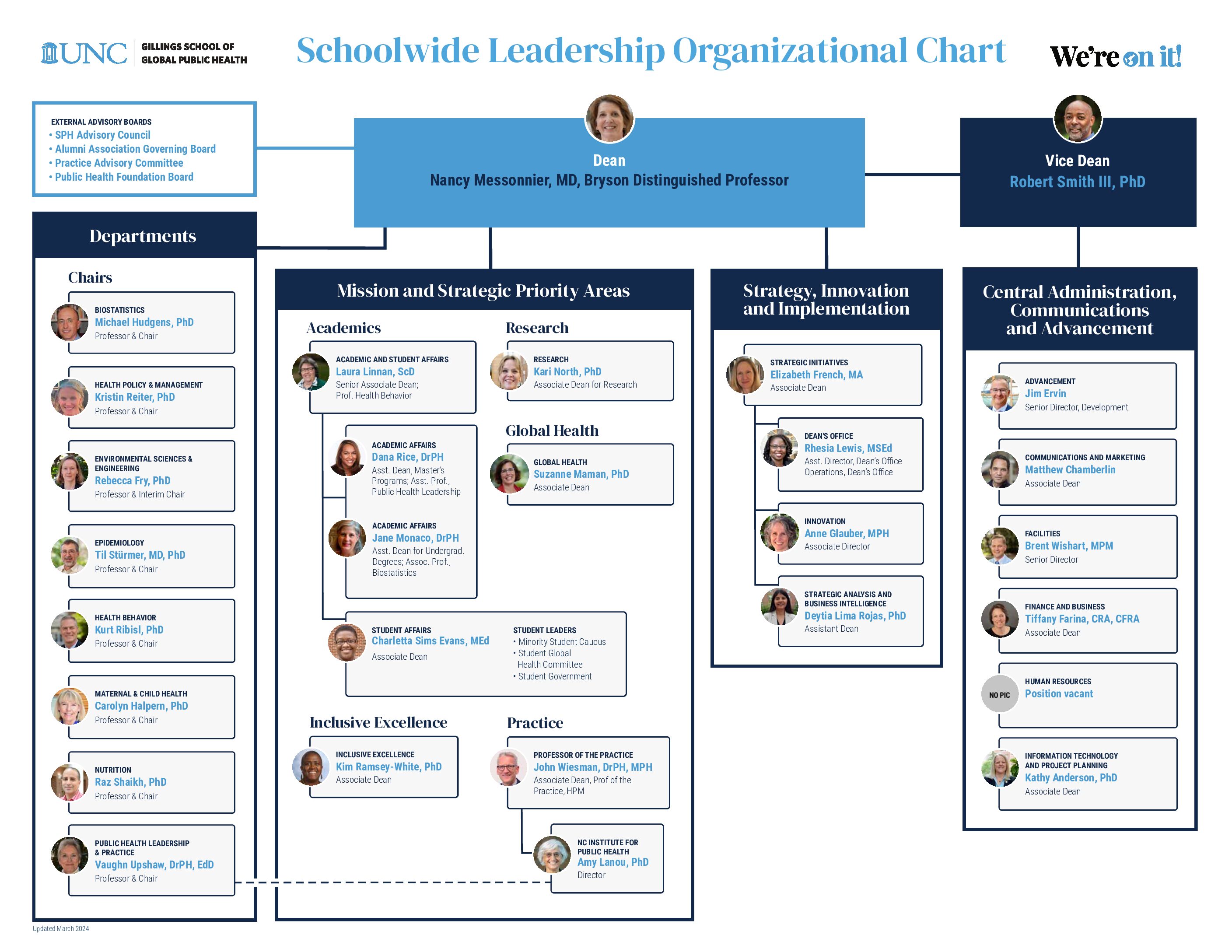Gillings School Leadership and Organizational Structure
School Leadership
Schoolwide administrative support services and cross-school functions are provided by centralized units (central administrative units) led by associate and assistant deans and directors. These leaders, the chairs of the seven academic departments and the director of the Public Health Leadership Program are identified on the organizational chart below. Together, these School leaders and student leaders comprise the Dean’s Council. Links to web pages for all units follow the organizational chart. Each department also has its own organization and leadership.
Our Department Units
Our academic departments provide guidance for the next generation of public health leaders.
Our Student Leadership Organizations
Our many student leadership organizations serve as the student voice of the Gillings School.
Our Academic and Practice Units
Our academics and practice units provide guidance and help implement change in the School, across North Carolina and around the world.
Our Administration
Our administrative units provide resources for students, faculty, staff and alumni.
External Advisory Boards and Committees
Individuals with substantial relevant experience and who are committed to the School’s mission serve on our volunteer boards and many School committees, including the ones below.
- Members of the School of Public Health Advisory Council are key advisers to the dean and leadership of the School, providing expert guidance in building strategies regarding current “big ideas” for even greater impact across North Carolina and around the world. They also advise about current, timely issues.
- The Alumni Association Board works with the School’s leadership and others to address issues of importance to alumni.
- The Public Health Foundation Board provides fiduciary oversight of the nonprofit foundation that manages the School’s charitable gifts. Primarily comprised of alumni, Board members provide advice about the School’s current and future directions.
- The Practice Advisory Committee strengthens our connections to practice, inside and outside of the school, to better address the challenges faced in improving the health of North Carolinians and the role of the Gillings School in doing so.

